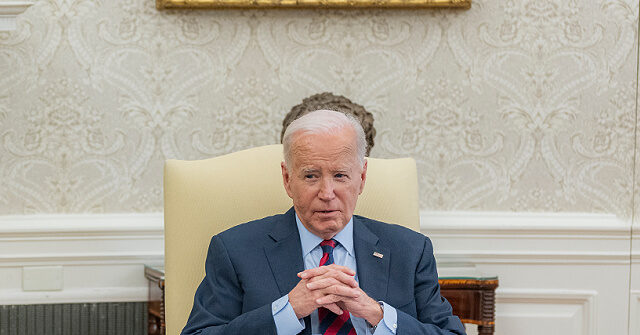Online retailing giant Amazon refused to send a representative to a European Parliament hearing on Tuesday (23 January) on working conditions in its mega-warehouses.
The hearing was held following concerns raised by workers and trade unions in Germany and Poland.
But the US giant decided not to send anyone to represent them, prompting immediate and widespread criticism from MEPs.
“Amazon has completely ignored all our efforts,” rightwing Polish MEP Elżbieta Rafalska (European Conservatives & Reformists) said during the hearing.
The parliament’s committee shared an informal invitation to Amazon on early November, and an official one on 20 December.
In a letter seen by EUobserver to the committee’s chairman, liberal Renew Romanian MEP Dragos Pislaru, Amazon insisted that it did not have a senior representative available “at short notice” for an exchange of views. The letter, however, was dated 11 January.
“I think this whole reply letter just shows that Amazon doesn’t really take a position on board at all,” Rafalska added.
An Amazon spokesperson told EUobserver that the US retailer giant is willing to welcome MEPs for a visit, as it has done in the past, and that they will continue to work to find a mutually convenient date for a visit “as soon as possible”.
Their letter highlights another possible reason for not attending the meeting, EUobserver understands — arguing that the hearing appears to focus only on Amazon, which the company says accounts for less than one percent of the total number of employees in the transport and logistics sector in the EU.
“A thorough exploration of these topics would be enhanced by the participation of other companies, relevant organisations in the field, and possibly academics to ensure an objective and comprehensive understanding,” James Waterworth, Amazon’s director of EU public policy wrote in his letter to the employment’s committee.
Less than €6 per hour
The company currently employs around 150,000 people in the EU, and the situation in its warehouses worries trade union representatives.
“When the employee does not meet the goals set in advance, which are only evaluated for one week, he/she gets a negative evaluation,” Agnieszka Mróz, an activist and trade union organiser working in an Amazon warehouse in Poland, told MEPs, noting this evaluation cannot be appealed and that a worker can be recommended for dismissal over such an automatic evaluation.
Mróz also spoke about the poor working conditions and the difficulty of going on strike, warning that the unions are not involved in wage negotiations and that salaries are not high enough for workers to live on.
“It’s not even €6 an hour before taxes,” Mróz pointed out.
A similar situation was described by Corinna Gross of Ver.di, the second-largest trade union in Germany.
After 10 years of struggles with Amazon and regular strikes, the company still refuses to sign ten collective agreements for good and healthy work, she said.
“People still get less money than they would under the collective agreement,” Groß emphasised. “It’s all very arbitrary”.
According to Amazon, its workers are paid above the minimum wage in all EU countries, even “as much as six percent higher”.
“The reason why Amazon invested so much in Poland is more because of the cheap labour, but it’s also because of the weakness of the labour laws,” the Polish activist told MEPs.
€32m fine
The hearing came on the same day as Amazon was fined €32m over an “overly intrusive” surveillance system used to monitor staff performance at its warehouses in France.
The French watchdog (CNIL) said in a statement that several thousand employees were affected by the surveillance systems, which did not comply with the EU’s General Data Protection Regulation (GDPR), and described the fine as “almost unprecedented”.
“This is what Amazon didn’t want us to see when they didn’t allow us to come and inspect the facilities,” said French Left MEP Leïla Chaibi.
Following calls to investigate anti-union repression and poor working conditions, MEPs were due to visit Amazon’s warehouses in Germany and Poland before the 2023 Christmas break — but the company decided to cancel these plans. For a second time.
After a lack of engagement with the parliament’s representatives, Chaibi and some other MEPs on the committee suggested sending an email to the president of the European Parliament, Roberta Metsola, asking that Amazon’s lobbyists be banned from the building “due to the lack of respect they have shown for our institution”.





















Discussion about this post